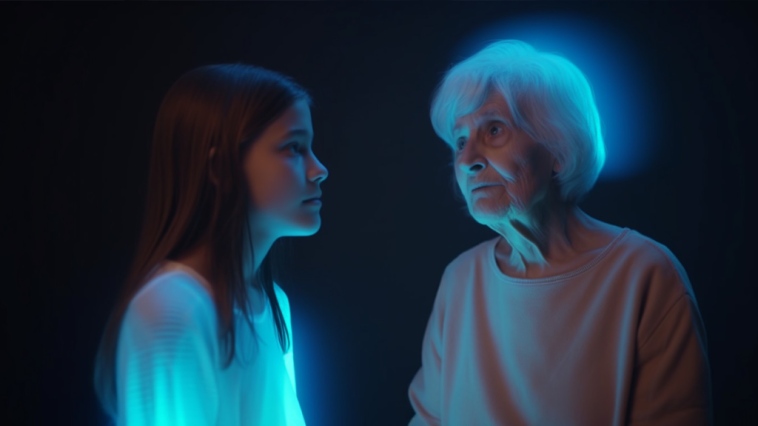In recent years, several start-ups have emerged, harnessing the power of artificial intelligence to enable people to stay connected with their loved ones even after their death. While these ventures offer a glimpse of hope and comfort, they also raise ethical concerns that warrant careful consideration.
One such start-up, DeepBrain AI, has developed the “Rememory” program. When Ryu Sun-yun, who lost her husband a few months ago, sits in front of a microphone and a giant screen, she can see her deceased spouse appearing before her. In a video demo, the man on the screen speaks to her, initiating a semblance of conversation. Joseph Murphy, the head of development at DeepBrain AI, clarifies that they do not create new content or fabricate sentences that the deceased individual would never have uttered during their lifetime. He emphasizes that this aspect of their business is niche and not a significant growth area.
StoryFile, another company in the field, utilizes the persona of 92-year-old “Star Trek” actor William Shatner to promote its services. Stephen Smith, the company’s CEO, explains their approach of capturing the essence of an individual and then utilizing AI tools. The Life service provided by StoryFile has attracted several thousand users.
The notion of preserving audio or video recordings of loved ones has been gaining attention, with entrepreneur Pratik Desai suggesting the possibility of creating autonomous avatars of deceased individuals by the end of the year. However, Desai faced criticism and later apologized, acknowledging the sensitivity of the topic.
While the idea of using AI to recreate deceased individuals has sparked interest, ethical considerations come to the forefront. Eugenia Kyuda, a Russian engineer based in California, developed a “chatbot” named Roman after her deceased best friend, feeding it with thousands of text messages he had sent. This initiative led to the launch of Replika, a platform offering personalized conversational robots. However, Replika clarifies that its purpose is not to recreate lost loved ones, but to provide sophisticated conversational experiences.
Somnium Space, a London-based company, aims to create virtual clones of individuals while they are still alive, enabling their existence in a parallel universe after death. CEO Artur Sychov acknowledges that this concept is not for everyone but emphasizes that those who desire such interactions will have the opportunity.
The technology enabled by generative AI allows avatars of departed loved ones to say things they never expressed in their lifetime. Joseph Murphy from DeepBrain AI believes that the challenges associated with this concept are more philosophical than technical. While he currently states that they do not intend to cross certain boundaries, he acknowledges the uncertainty of the future.
Experts in the field recognize the potential benefits of interacting with AI versions of deceased loved ones, particularly in cases where grief is complicated by abuse or trauma. Candi Cann, a professor researching this topic in South Korea, suggests that it could help individuals find closure. However, Mari Dias, a professor of medical psychology, highlights that many bereaved individuals express distrust in AI and fear losing control over the actions of the avatar.
As the development of AI-driven avatars continues to evolve, it is crucial to strike a balance between technological possibilities and ethical considerations. The quest to provide solace and connection should be accompanied by comprehensive discussions and safeguards to ensure that the use of AI in this domain is respectful, consensual, and beneficial to those who seek comfort in it.

